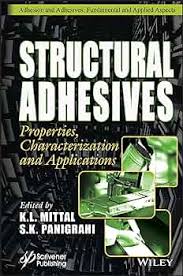Ask Dr. Dave
How can acrylic adhesives be used at very high temperatures?
Dr. Dave discusses steps that can be taken to ensure that acrylic adhesives perform as expected in high-temperature applications, such as automotive.

Acrylics such as tough acrylics and anaerobics are routinely used at 150˚C in situations like automotive under-the-hood applications. The problem is that most of these adhesives are based on methacrylate monomers, and the polymers start to degrade at a little under 200˚C. Polymer chemists call this an “unzipping” reaction, where the polymer chains literally depolymerize back to monomers or short chain fragments.
The classic example is polymethyl methacrylate (Plexiglas or Perspex), which depolymerizes to close to 100% methyl methacrylate monomer. Additives can improve the heat resistance. Common free radical stabilizers such as quinones can help but tend to slow down or inhibit the polymerization reaction. Other additives such as bismaleimides or cyanate esters have been chosen from aerospace polymer technology.
You should search the patent literature for examples. However, you might consider a more simple approach. Adhesives based on acrylates rather than methacrylates often do have better heat resistance, and adding some acrylate monomer to a methacrylate-based system seems to interfere with the unzipping reaction. I have seen such mixed systems show zero weight loss when the bulk adhesive is heated to 260˚C (that’s 500˚F) for 24 hours!
Any views or opinions expressed in this column are those of the author and do not represent those of ASI, its staff, Editorial Advisory Board or BNP Media.
Looking for a reprint of this article?
From high-res PDFs to custom plaques, order your copy today!







